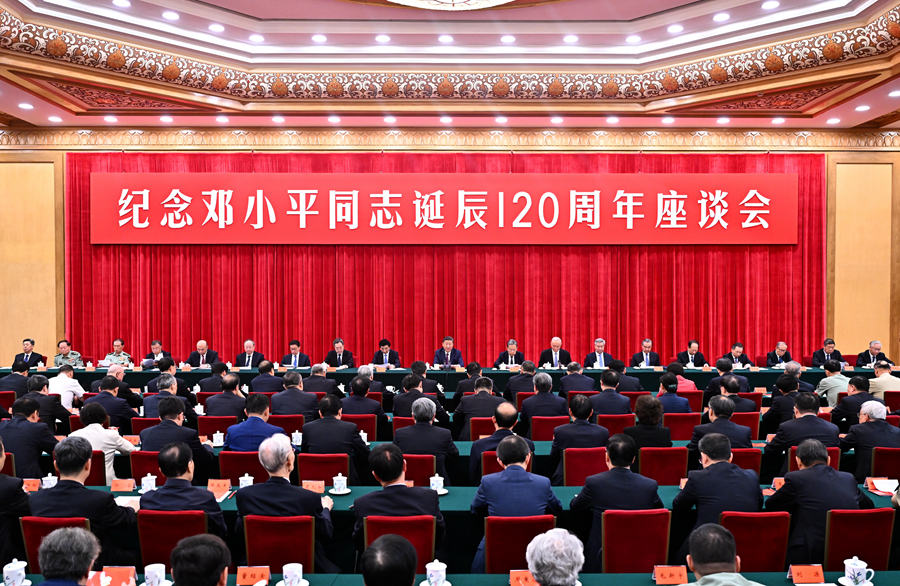Advancing socialism with Chinese characteristics builds on Deng's legacy: China Daily editorial


Thursday marks the 120th anniversary of the birth of Deng Xiaoping. The grand gathering the central authorities held in Beijing today, as well as the series of commemorative activities organized nationwide to cherish the memory of the former Chinese leader all convey the great influence he had on the country.
Deng made indelible contributions, in theory, ideology, institutions and practice, that ushered in a new phase of development featuring a pioneering spirit and pragmatism, rather than conformism and dogmatism.
His most important political legacies have been socialism with Chinese characteristics that he led the Communist Party of China and the Chinese people to create, and Deng Xiaoping Theory. Although the formation of the theory named after him dates back to the revolutionary era long before New China was founded, it was during Deng's exploration of the socialist path with Chinese characteristics with the launch of reform and opening-up that it developed rapidly in the process of testing and practice.
The theory, which stresses seeking truth from facts, is an adaptation of Marxism–Leninism to the existing socioeconomic conditions of China. It has played an indispensable role as a guideline for the making of a series of groundbreaking top-level-design policies and as the inspiration for numerous trailblazers in all walks of life since the late 1970s.
It has enabled China to make the most of what it has and can do while firmly adhering to its socialist path, producing the mutually reinforcing effects between the enhancement of the common good of the people and the consolidation of the Party's leadership. That provided the guarantee for China's fast economic growth in the following decades and long-term political and social stability featuring tremendous institutional dynamics, vitality, inclusiveness and flexibility.
In that sense, as the chief architect of the reform and opening-up policy and its implementation, Deng also played a key role in laying the foundation for Chinese-style modernization. In 1992, after Deng visited some coastal cities in a show of his rock-solid support to local reformists, the Party made the founding of "a socialist market economic system" the goal of the country's economic reform for the first time at its 14th National Congress. From then on the Party and the nation have concentrated their efforts to strive for the realization of that objective and the daunting task of cutting the cake fairly while making it bigger.
At the same time, as a leader with much experience of wars and chaos, Deng insisted China always adhere to the path of peaceful development, and put forward the proposition that peace and development are the two themes of the contemporary world. His farsighted pro-peace and pro-development proposals are still the twin pillars of China's foreign policy framework today, which centers on opposing hegemony and promoting international cooperation and exchanges with all countries.
By acting on that, China has not only created for itself and its neighbors a good external development environment but also promoted regional and world peace, stability and common development, laying the foundation for the vision it proposed in the new era of building a community with a shared future for mankind.
As Deng once noted, the leadership of the Party is the most fundamental guarantee for the nation to withstand storms. Facing rising uncertainties and risks in its external development environment, as President Xi Jinping pointed out on Thursday, to promote Chinese modernization and advance socialism with Chinese characteristics under the Party's leadership are the best way to carry on Deng's historical legacy. To that end, the country must firmly adhere to the path of reform and opening-up and continuously strengthen the leadership of the CPC Central Committee with Comrade Xi Jinping at its core, in order to continuously break new ground for China's development and promote world peace and common development.


































